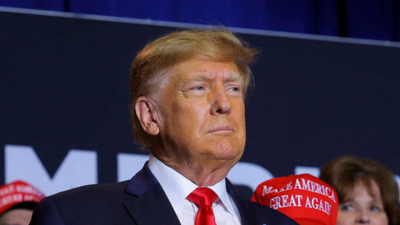
US President-elect Donald Trump has long voiced his intention to close the US
Department of Education
, calling it inefficient and overly controlling.
Trump’s plan, detailed in his Agenda47 and Project 2025 proposals, has drawn support from tech billionaire Elon Musk. However, experts and lawmakers caution that closing the department may face significant obstacles, particularly given its key role in funding education and managing student loans, as reported by Forbes.
Trump’s stance on education
Trump has repeatedly criticised the Department of Education, which was established in 1979 by President Jimmy Carter, calling it an example of unnecessary government control. "We are absolutely at the bottom; we're one of the worst" in education despite spending three times more than other nations, he claimed, referencing US education spending. He has also accused the department of harboring staff that "in many cases, hate our children," and argued that state governments could manage education more effectively.
In a video message last year, Trump said, "We want states to run the education of our children, because they’ll do a much better job of it. You can’t do worse."
Trump’s campaign proposals also include controversial measures, such as cutting funding to schools that teach
critical race theory
or "transgender insanity" and credentialing teachers who support "the American Way of Life." These measures would fall outside federal jurisdiction if the Department of Education were shut down.
Elon Musk’s support
Elon Musk, a prominent Trump donor, has voiced his support for the idea, calling it a "good idea" and sharing a meme about the department’s impact on US education. The meme featured a photo of Carter with the text: "In 1979, I created the Department of Education. Since then, America went from 1st to 24th in education." However, the accuracy of this claim is unclear, and supporting data remains unverified.
While Musk’s support aligns with Trump’s agenda, the challenge of closing the department goes beyond public backing. Shutting down the Department of Education would require congressional approval, likely needing a supermajority of 60 votes in the Senate. Although Republicans regained control of the Senate in the midterm elections, they fall short of 60 votes, meaning bipartisan support would be needed for the measure to pass.
What would closing the department mean?
The Department of Education is responsible for allocating federal education funds, which account for about 14% of total education funding in the US. These funds are essential for programs like Title I, which supports high-poverty schools, and the Office of Special Education Programs, which aids disabled students. The department also manages student loans, enforces civil rights in schools, and oversees various educational reforms. If it were closed, it’s unclear how these responsibilities would be managed.
Trump has not yet addressed the fate of
federal student loan programs
or clarified how these crucial functions would be handled without the department.
Project 2025’s education plan
Under Project 2025, Trump’s vision includes reallocating the Education Department’s programs to other federal agencies. For example, civil rights enforcement would fall under the Department of Justice, while the student loan program would shift to a new division within the Treasury Department. The plan also proposes eliminating Title I funding, cutting the Head Start program, and rolling back protections against discrimination based on sexual orientation and gender identity in schools.
Public opinion
An August survey from Pew Research found that 44% of Americans hold a favorable view of the Department of Education, though there are significant partisan divides. Only 27% of Republicans view it favorably, compared to 62% of Democrats. The department ranks 14th out of 16 federal agencies in popularity, with the National Park Service, US Postal Service, and NASA topping the list.

 1 week ago
4
1 week ago
4










 English (US) ·
English (US) ·